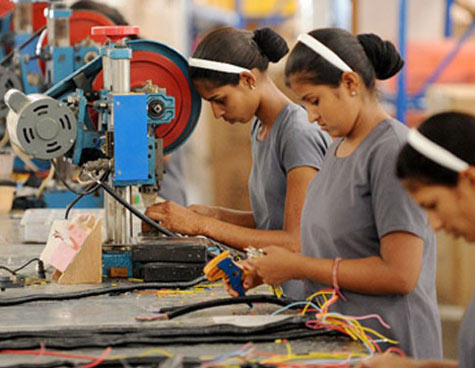Time and again the powers at the Centre have stressed on greater participation of women in the workforce. But for that, provision of a safe, secure environment is a natural prerequisite. The gap is still gaping wide.
 [File] A FICCI-EY report stresses on the need for invoking a strong commitment for tackling sexual harassment at workplace | AFP
[File] A FICCI-EY report stresses on the need for invoking a strong commitment for tackling sexual harassment at workplace | AFP
Addressing a workshop on women safety at the workplace in Delhi on Monday, Sutapa Sanyal, director general of police, UP Police Mahila Samman Prakoshth, said that the need for gender balance was crucial to raise the country's GDP. "In a full potential scenario, roughly $28 trillion or 26% could be added to the global GDP."
A FICCI-EY report—Reflections on the State of Women Safety at the Workplace in India’—was also released on the occasion. The report stressed on the need for invoking a strong commitment for tackling sexual harassment at workplace.
The common reasons for failure to report safety concerns, according to the report, include lack of understanding about the harassment and laws, lack of faith in the complaints process, fear of retaliation by the harasser or organisation, self-judgment and social stigma.
“Greater number of women in the corporate world today has prompted organisations to build safer working establishments for women employees in India. While cases of sexual harassment at workplace are a major concern, there are other factors too that need to be accounted for to enable safer workplace for employees. The onus is on corporates to set the tone," said Saguna Sodhi, executive director, Fraud Investigation & Dispute Services, EY India.
Some of these methods are: getting women to speak up, deploying technology, adopting a zero-tolerance policy, dealing with cultural matters, engaging third-party service providers, instituting gender-sensitisation trainings, mandating appropriate work practices and making working conditions safe.
The growth in tier-two and tier-three cities into potential business hubs has also contributed to a higher number of women stepping into the corporate world. Thus, a strong stance toward fostering an inclusive environment and addressing workplace harassment issues can help in building a safer work environment in India.
Ambika Sharma, director general - International, FICCI and chairperson, Internal Complaints Committee, FICCI, said that safety should not be just confined to the physical environment of the office but address all interactions that women engage in as part of the work.




